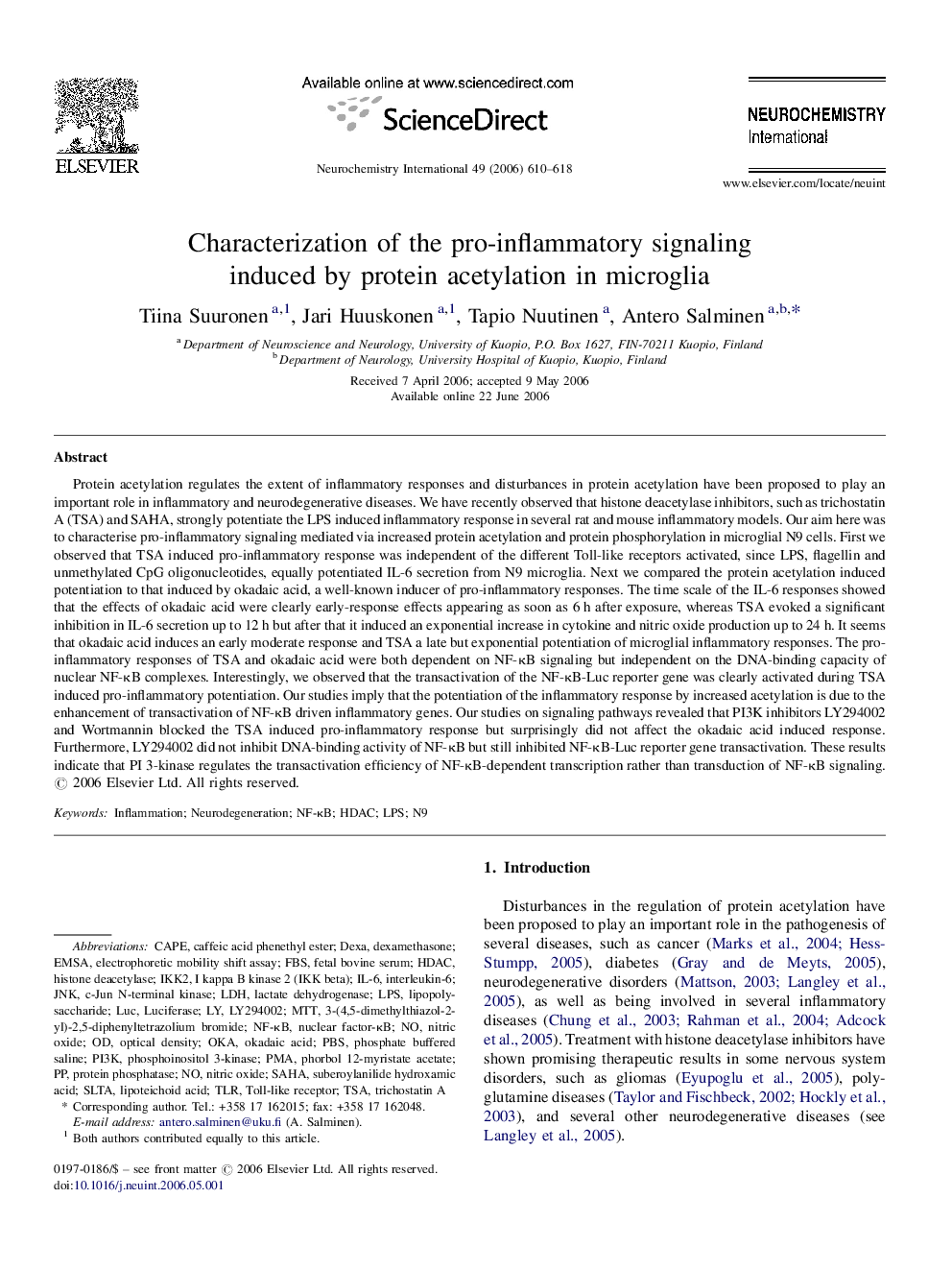| Article ID | Journal | Published Year | Pages | File Type |
|---|---|---|---|---|
| 2201731 | Neurochemistry International | 2006 | 9 Pages |
Protein acetylation regulates the extent of inflammatory responses and disturbances in protein acetylation have been proposed to play an important role in inflammatory and neurodegenerative diseases. We have recently observed that histone deacetylase inhibitors, such as trichostatin A (TSA) and SAHA, strongly potentiate the LPS induced inflammatory response in several rat and mouse inflammatory models. Our aim here was to characterise pro-inflammatory signaling mediated via increased protein acetylation and protein phosphorylation in microglial N9 cells. First we observed that TSA induced pro-inflammatory response was independent of the different Toll-like receptors activated, since LPS, flagellin and unmethylated CpG oligonucleotides, equally potentiated IL-6 secretion from N9 microglia. Next we compared the protein acetylation induced potentiation to that induced by okadaic acid, a well-known inducer of pro-inflammatory responses. The time scale of the IL-6 responses showed that the effects of okadaic acid were clearly early-response effects appearing as soon as 6 h after exposure, whereas TSA evoked a significant inhibition in IL-6 secretion up to 12 h but after that it induced an exponential increase in cytokine and nitric oxide production up to 24 h. It seems that okadaic acid induces an early moderate response and TSA a late but exponential potentiation of microglial inflammatory responses. The pro-inflammatory responses of TSA and okadaic acid were both dependent on NF-κB signaling but independent on the DNA-binding capacity of nuclear NF-κB complexes. Interestingly, we observed that the transactivation of the NF-κB-Luc reporter gene was clearly activated during TSA induced pro-inflammatory potentiation. Our studies imply that the potentiation of the inflammatory response by increased acetylation is due to the enhancement of transactivation of NF-κB driven inflammatory genes. Our studies on signaling pathways revealed that PI3K inhibitors LY294002 and Wortmannin blocked the TSA induced pro-inflammatory response but surprisingly did not affect the okadaic acid induced response. Furthermore, LY294002 did not inhibit DNA-binding activity of NF-κB but still inhibited NF-κB-Luc reporter gene transactivation. These results indicate that PI 3-kinase regulates the transactivation efficiency of NF-κB-dependent transcription rather than transduction of NF-κB signaling.
